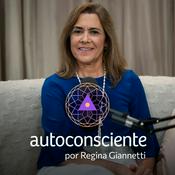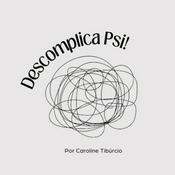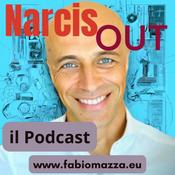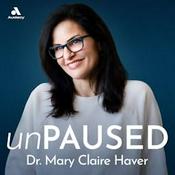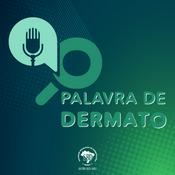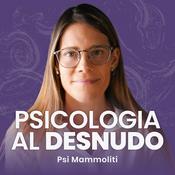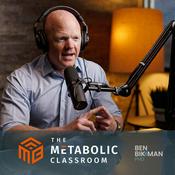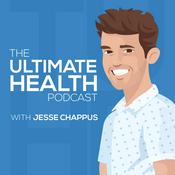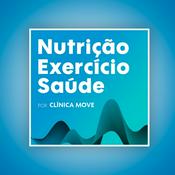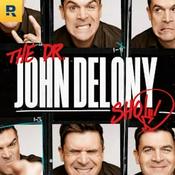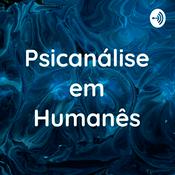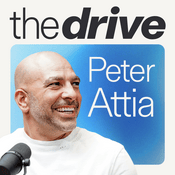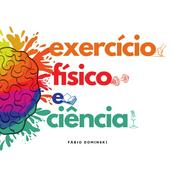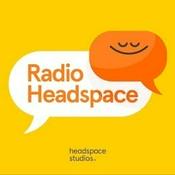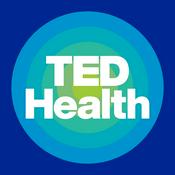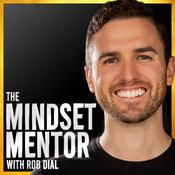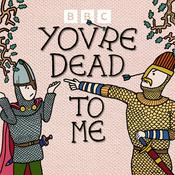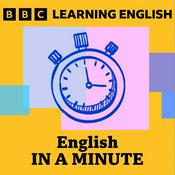287 episódios
- Statins are one of the most prescribed drugs in the world as they are highly effective at reducing “bad” LDL cholesterol that causes cardiovascular disease. A new review in the Lancet has found there are far fewer side effects associated with their use than previously thought.
New Nipah cases have been reported in India and Bangladesh. Trudie Lang Professor of Global Health Research at the University of Oxford explains the significance and how worried we should be.
A team in Cardiff, Wales have designed a reusable sanitary pad that cleans in sunlight. As a trial of the product begins in Nepal, we find out what the participants think of the idea and how it works.
What does air pollution do to our bodies? James Gallagher reports.
Plus, does pink noise actually help us sleep?
Presenter: Laura Foster
Producer: Hannah Robins
Assistant Producers: Jonathan Blackwell, Anna Charalambou - Many of us can empathise with that feeling of keeping stuff for years and years. We might keep treasured objects with real sentimental value, or we might have items for a long time - and yet we can't really explain why. For those of us who don’t like getting rid of our belongings, life can feel very full of stuff. But when does a tendency to hold on to things become more worrying? It can be difficult to put a figure on just how many people have what's known as hoarding disorder. So what causes this complex and little discussed issue – and is it more than just a problem of too much stuff? Claudia visits a woman who describes how hoarding has taken over her life to the extent that she doesn’t let anyone into her home. We also meet her psychologist to understand what underpins hoarding disorder and how it’s treated.
And joining us in the studio is Catherine Loveday, Professor of Cognitive Neuroscience at the University of Westminster to look at whether our state of mind when we get vaccinated affects how well the vaccine works. They also discuss why the menopause might be bad for the brain whereas grandparenting might be good for the brain.
Presenter: Claudia Hammond
Producer: Jonathan Blackwell & Gerry Holt - For some communities in South Africa coming-of-age initiations are a hugely significant moment, but there have been rising concerns over the safety of the circumcisions at the heart of this ritual. Forty-eight young men died last year and the government are now introducing measures to tackle the issue. BBC’s southern Africa correspondent Pumza Fihlani reports on the latest.
Research suggests our hair does not grow by pushing up and out but by being pulled by a coordinated network of moving cells. Our studio guest Graham Easton, professor of clinical communication skills and former family doctor discusses the significance.
What is the best way to encourage more people to give blood? New research from China evaluates system where donors were offered incentives such as free access to public bus services. Professor of Health Psychology Eamonn Ferguson puts this in the context of different approaches used worldwide.
And should doctors use emojis in communications with patients? A new paper analyses how many are used and which ones by clinicians and patients in Michigan, USA. We discuss the pros and cons of their use.
Presenter: Claudia Hammond
Producer: Hannah Robins
Assistant producer: Jonathan Blackwell
Researcher: Anna Charalambou - Joined by BBC Brazil reporter Camilla Mota, presenter Claudia Hammond discusses new research from the U.S. that has found that people who have had a vaccine against shingles seem to be aging more slowly.
We hear from James Tibenderana, Chief Executive of Malaria Consortium about research from Brazil that shows that as deforestation expands, mosquitoes are increasingly using humans as a blood source instead of wildlife. What does this mean for the spread of mosquito-borne diseases?
Plus, why does Brazil have a particularly high number of supercentenarians? And could swearing make you stronger?
Presenter: Claudia Hammond
Producer: Hannah Robins
Assistant Producers: Jonathan Blackwell and Anna Charalambou - We are often told exercise is good for boosting your mood, but a new Cochrane review has looked at what the evidence says about how much difference exercise can really make when treating depression.
Many patients with chronic conditions fail to take medications as prescribed. We discuss a novel pill casing that can send a signal once it has been broken down in the stomach. Prof Giovanni Traverso, gastroenterologist and director of the Laboratory for Translational Engineering at MIT, explains how it works.
A year on from the USAID freeze, global health journalist Andrew Green unpicks America’s radically different influence on world health today.
In Malawi’s townships, many families can no longer afford charcoal or gas. Instead, they turn to burning plastic waste as cooking fuel. This keeps food on the table but fills kitchens and markets with toxic smoke, contributing to respiratory illness, pregnancy complications, and environmental damage. We hear from our reporter, Carrim Mpaweni.
And we look at auto-brewery syndrome as researchers search for why some people’s gut microbes produce high alcohol levels.
Presenter: Claudia Hammond
Producer: Hannah Robins
Assistant producers: Jonathan Blackwell and Anna Charalambou
Mais podcasts de Saúde e fitness
Podcasts em tendência em Saúde e fitness
Sobre Health Check
Health issues and medical breakthroughs from around the world.
Site de podcastOuça Health Check, Psicanálise de Boteco e muitos outros podcasts de todo o mundo com o aplicativo o radio.net
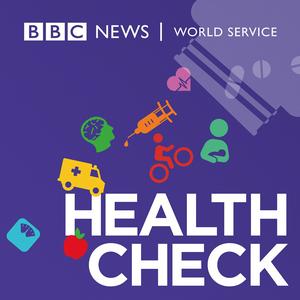
Obtenha o aplicativo gratuito radio.net
- Guardar rádios e podcasts favoritos
- Transmissão via Wi-Fi ou Bluetooth
- Carplay & Android Audo compatìvel
- E ainda mais funções
Obtenha o aplicativo gratuito radio.net
- Guardar rádios e podcasts favoritos
- Transmissão via Wi-Fi ou Bluetooth
- Carplay & Android Audo compatìvel
- E ainda mais funções


Health Check
Leia o código,
baixe o aplicativo,
ouça.
baixe o aplicativo,
ouça.






